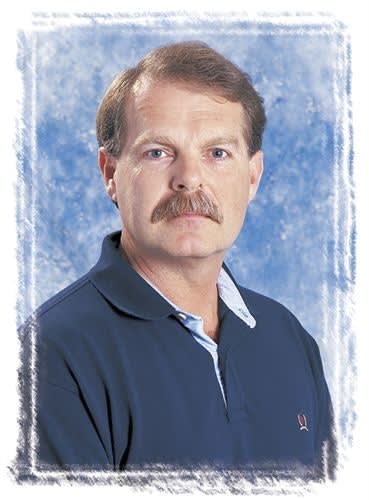I watched Richard Gephardt speak on national television recently. He said, basically, that we can't expect citizens to take responsibility to fight terrorists on airplanes. As I recall, he said it was ludicrous. Tell that to the heroes who did it.
This kind of volunteer-victim thinking is rampant and as cops, you see it every day. The ability of many of the people you serve to simply disavow any responsibility for their own safety and actions is mind boggling. More astounding is the fact those same people seem perfectly content to put their lives into your hands. Frankly, I can't fathom any cop I know who would willingly put their own or their family's safety into the hands of an unknown stranger.
This is part of that increasingly cancerous rot at the core of society in which the general loss of accountability has made the lack of consequences for personal actions a normal fact of life today. I call it the "Someone else will take care of it" syndrome. We have to somehow teach them that, no, actually, they are responsible for their own safety and likely, no one else will take care of it, whatever "it" may be. From fighting terrorists, making sure their families and property are safe to putting their mind in gear before putting their mouths in motion, "they" are the responsible parties involved.
When Harry Truman put the sign on his desk that said "The Buck Stops Here," he meant it. There was no fingerpointing, whining or nay-saying. It was perhaps the ultimate case of personal accountability and we need more of it.
Any cop with any time in the field can come up with a score of situations to illustrate the points in question.
A noteworthy scene, once, was the distraught BMW driver who stood by the curb, wringing his manicured hands, suspenders flapping in the wind, as I spoke to him about his loss:
"Where were you?" he screeched at me, spittle spraying in an evenly distributed pattern on my uniform shirt. "Eating donuts somewhere while they stole my briefcase?"
"Well, actually," I said with sincere honesty, "I was two blocks over taking another report from another brainless-wizard who also left his cell phone, camera and laptop computer in plain view on the seat of his Mercedes."
It was worth the discipline ...
This kind of self-possessed thinking by many citizens helps to keep cops employed, true, but wouldn't it be nicer if you could be out doing some proactive policing instead?
Just once, wouldn't you like to say what's in your heart? (I can't, unfortunately, do that in a national magazine, or I would, just for you ...) But you'd better not (locker-room conversation aside). What we can do is engage in a, shall I call it an "education process" that starts in the street. Simply explaining the realities of police work can do wonders toward counteracting the damage done by years of politically correct public relations TV spots and "Your Safety Our Business" signs painted on police cars.
While you may get in hot water if you say it the way you'd like to, there is nothing wrong with telling the truth about response times and "real" ways to fight back. While you're at it, it wouldn't hurt to remind certain citizens you may encounter from time to time that they reap what they sow. Act like an idiot and ... guess what?
By stressing personal accountability to the people you contact (from the irate citizen who left his car open with the keys in it to the genuinely concerned father who wants to protect his family) you will help to put our citizenry back on its feet. I hate to even use this word, but it "empowers" them to take control of a big portion of their lives.
Imagine that.
P.S. I promise I'll never use "synergy." Ever. "Empowers" is bad enough ...












